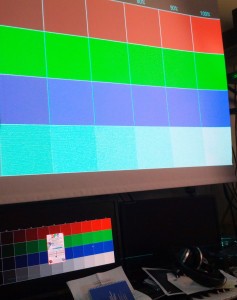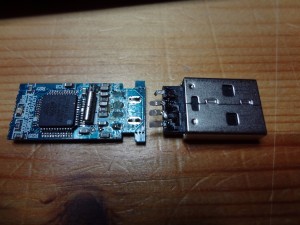work
FreeBSD / pfSense slow network with Hyper-V

For some reason, it took me way too long to find information about this issue – so I’m writing another article that will hopefully help some people.
IT Ticket # 1337
Problem Description: Network performance through pfSense is extremely slow with Hyper-V
Software Versions: pfSense 2.6.0 and Windows Server 2022 (August 2022 patches)
Steps Taken Already: Confirmed hardware TCP offload is disabled; confirmed hardware checksum disabled; confirmed MTUs were correct.
Solution: Read on for the solution (hint: it’s a known driver bug, and for now only a workaround exists)
› Continue readingCreating a Private + Guest WiFi Access Point (DD-WRT)

Recently I was asked to configure a WiFi access point for a small business, who needed to have both a private internal network, and a public guest network.
There are many privacy concerns when having guests share your network. Specifically, it is desirable to:
- Disallow access to any computers on the private network
- Prevent network abuse (such as P2P file sharing)
- Secure the access point itself from tampering or unauthorized access
Of course, all this needs to be done without impacting the desired service: Internet access.
Although I found many guides online for setting up a guest network when the access point was also the primary router, I didn’t find any that worked for the intended network. So, after some trial, error, and research, I managed to get it to work.
Repairing a Projector with Tinted and Washed-Out Display
My employer came to me with a little project. The office projector stopped working properly after someone touched the pins of the VGA video cable, and presumably released ESD energy into the projector. The picture’s colours were all tinted and washed out!
Note that the bottom monitor is displaying the same colour pattern
as the projector. Grey is completely missing!
He asked me if I’d like to take a look at it. My answer, as would be expected, was “of course!”
USB Stick Data Recovery
It isn’t the first time, and it probably won’t be the last. Today I had a client e-mail me in some panic, as her USB memory drive had stopped working. It was plugged into the computer, and someone walked into it, bending the connector.
Breaking the 64MB, chinese-made promotional USB key was not the disaster – it was losing the files on it.
I’ve had luck before re-soldering damaged USB key connectors, so I got my tools together and gave it a shot.
Last Day of Summer Co-op
Today marks the end of my co-op at the David Florida Laboratories. The experience was nothing less than incredible. I was so fortunate to work alongside professionals with decades of experience in the RF qualification field, people who were so very helpful and willing to share their knowledge with me. It is going to be hard leaving this.
However, I’ve learnt so much about a field I knew so little of going in. I spent 2 hours one night reading some chapters marked in my professor’s RF textbook, and explored some Wikipedia pages – that was the extent of my training. Over the course of the summer, I was exposed to tools I will likely never personally own, and that will be hard to come by even in school: spectrum analyzers, network analyzers, high power RF amplifiers, e-field probes. It was incredible.
Here is a picture of me at my test station, in front of a 1kW amplifier, the probe monitor, the signal generator and the test software. I’ve greyed out anything I’m not allowed to share:
Yeah, I know, it sucks. I wish I could, too.



